The Third Life of Grange Copeland (31 page)
Read The Third Life of Grange Copeland Online
Authors: Alice Walker

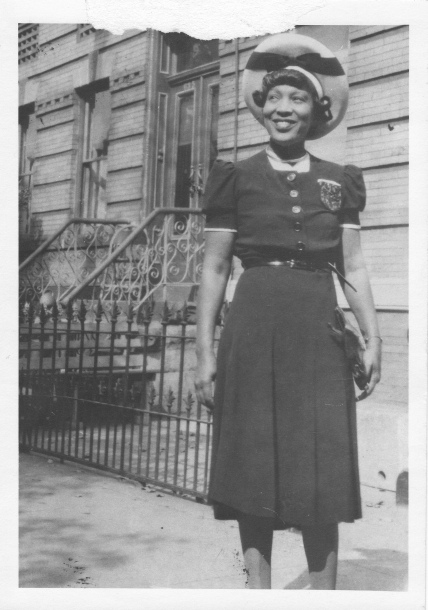
Harlem Renaissance writer Zora Neale Hurston during her days in New York City. Hurston, who fell into obscurity after her death, had a profound influence on Walker. Indeed, Walker’s 1975 essay, “In Search of Zora Neale Hurston,” played a crucial role in resurrecting Hurston’s reputation as a major figure in American literature. Walker paid further tribute to her “literary aunt” when she purchased a headstone for Hurston’s grave, which had gone unmarked for over a decade. The inscription on the tombstone reads, “A Genius of the South.”

Alice (front) in Kenya in 1965. She traveled there to help build the school pictured in the background as part of the Experiment in International Living Program. It was here that Walker first witnessed the practice of female genital mutilation, a practice that she has since worked to eradicate.
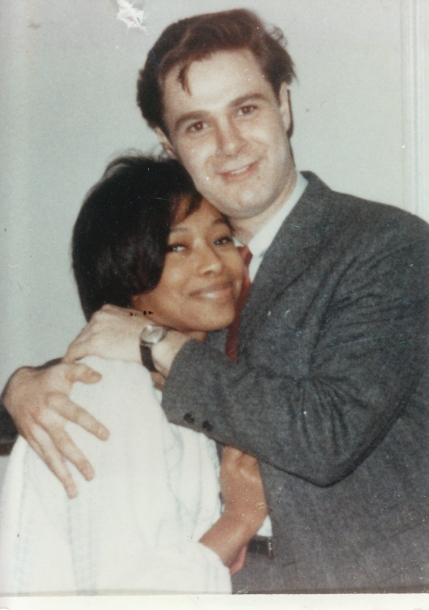
Walker with her former husband, Melvyn Leventhal, a Brooklyn native. The couple met in Mississippi and bonded over their mutual involvement in the struggle for civil rights—he as a budding litigator for the NAACP Legal Defense and Education Fund, she as one of the organization’s workers responsible for taking depositions from disenfranchised black voters. Despite disapproval from their respective families, Alice and Melvyn wed in New York City in 1967. They then returned to Mississippi, where they were often subjected to threats from the Ku Klux Klan. Eventually the pressures of living in the violent, segregated state, coupled with their divergent career paths, caused the pair to drift apart. They divorced amicably in 1976.
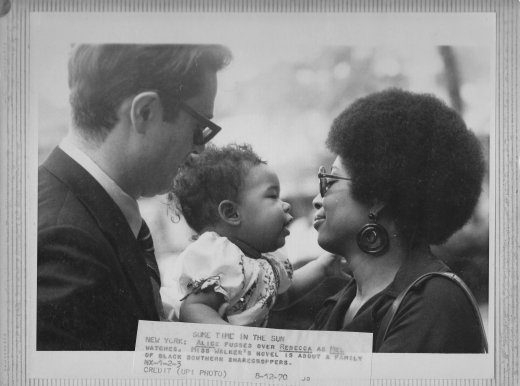
Alice and Melvyn with their daughter, Rebecca, who would also grow up to become a writer, in 1970. Alice had just published her debut novel,
The Third Life of Grange Copeland
, which garnered significant praise and prompted these perceptive words from critic Kay Bourne: “Most poignant is the relating of the lives of black women, who were ready and strong and trusted, only to so often be abused by the conditions of their oppressed lives and the misdirected anger of their men.” Alice characterized it as “an incredibly difficult novel to write,” since it forced her to confront the violence African Americans inflicted on each other in the face of white oppression.
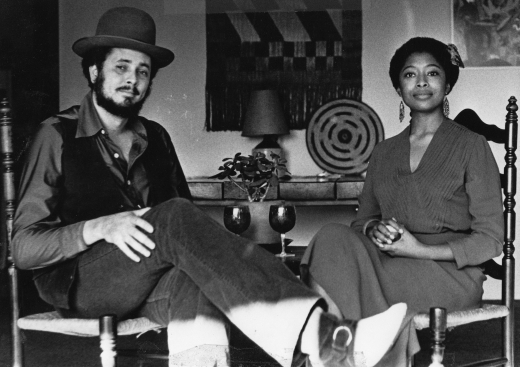
Alice and her partner of thirteen years, Robert L. Allen, a noted scholar of American history, pose for a portrait. The picture was taken at a celebration the couple hosted after the publication of
I Love Myself When I Am Laughing
, an anthology of Zora Neale Hurston’s writings that Alice edited.

Walker being taken into custody at a 1980s demonstration against weapons shipments sent from Concord, California, to Central and South America. Her shirt reads: “Remember Port Chicago.” This is a reference to an explosion that killed hundreds of sailors stationed in Concord during World War II—most of them black—while they were loading munitions onto a cargo vessel. Walker has remained a dedicated political activist since the 1960s, when she returned to the South after graduating from Sarah Lawrence to help register black voters. Recently, she was arrested with fellow California-based author Maxine Hong Kingston in Washington, DC, during a protest against the U.S. invasion of Iraq. “My activism—cultural, political, spiritual—is rooted in my love of nature and my delight in human beings,” Walker explains.
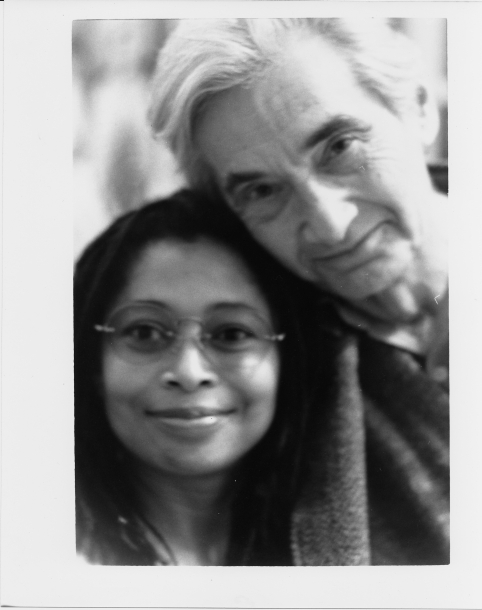
Walker with celebrated historian Howard Zinn, who taught one of her classes at Spelman College, in the 1960s. Walker developed a lifelong friendship with Zinn and considered him one of her mentors. The two shared a passion for political activism and a desire to shed light on the conditions of the oppressed. “I was Howard’s student for only a semester,” she says, “but in fact, I have learned from him all my life. His way with resistance—steady, persistent, impersonal, often with humor—is a teaching I cherish.”
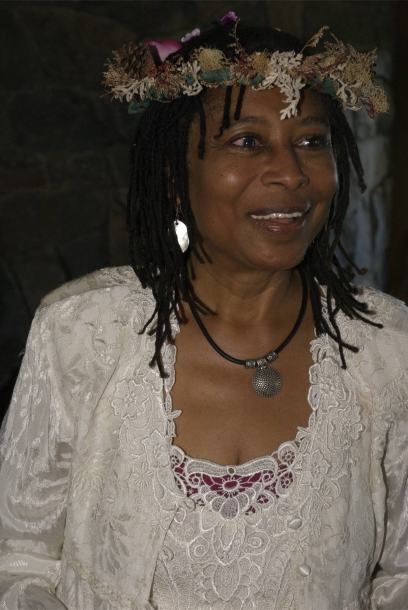
A photograph of Walker taken in 2007 at a ceremony for her dog, Marley, and her cat, Surprise. “Marley appeared,” she says, but “Surprise slept through it!”
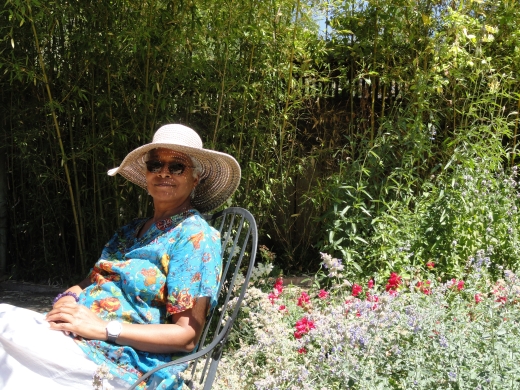
Walker at her country home in Northern California, where she has lived since the early 1980s. “What attracted me to this part of the world—Northern California—is really the resemblance to Georgia that it has,” she once told an interviewer. “This has been a very good place for me,” she went on, “a very good place for dreaming.”

Walker writing on the front porch of her California home. She has lived in many different places throughout the world—including Africa, Hawaii, and Mexico—and finding a place to write has always been a matter of utmost importance for her. She once said that “books and houses” are what she “longed for most as a child.” Years after her tenant farming childhood, Walker is happy to have a place she can truly call home.
